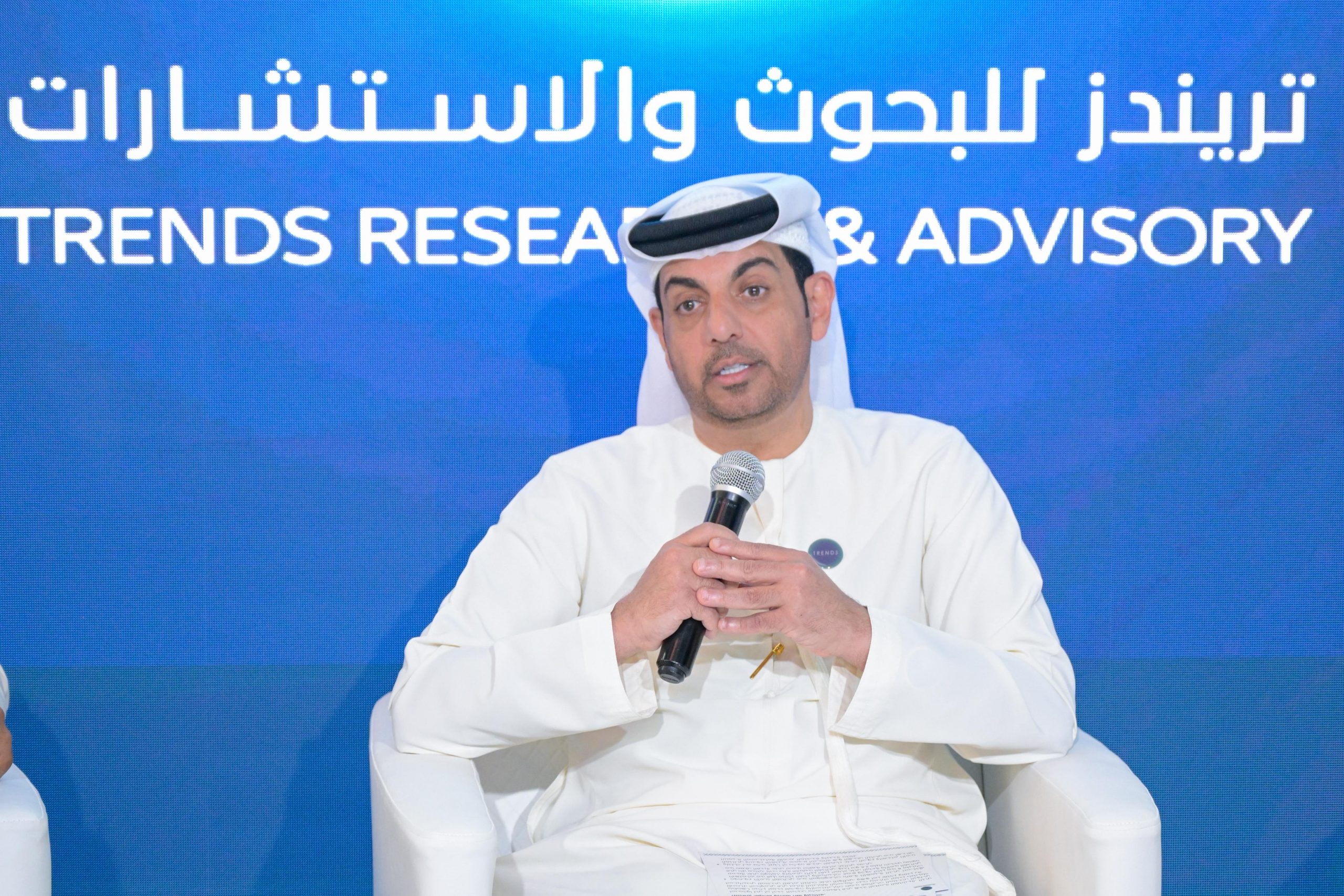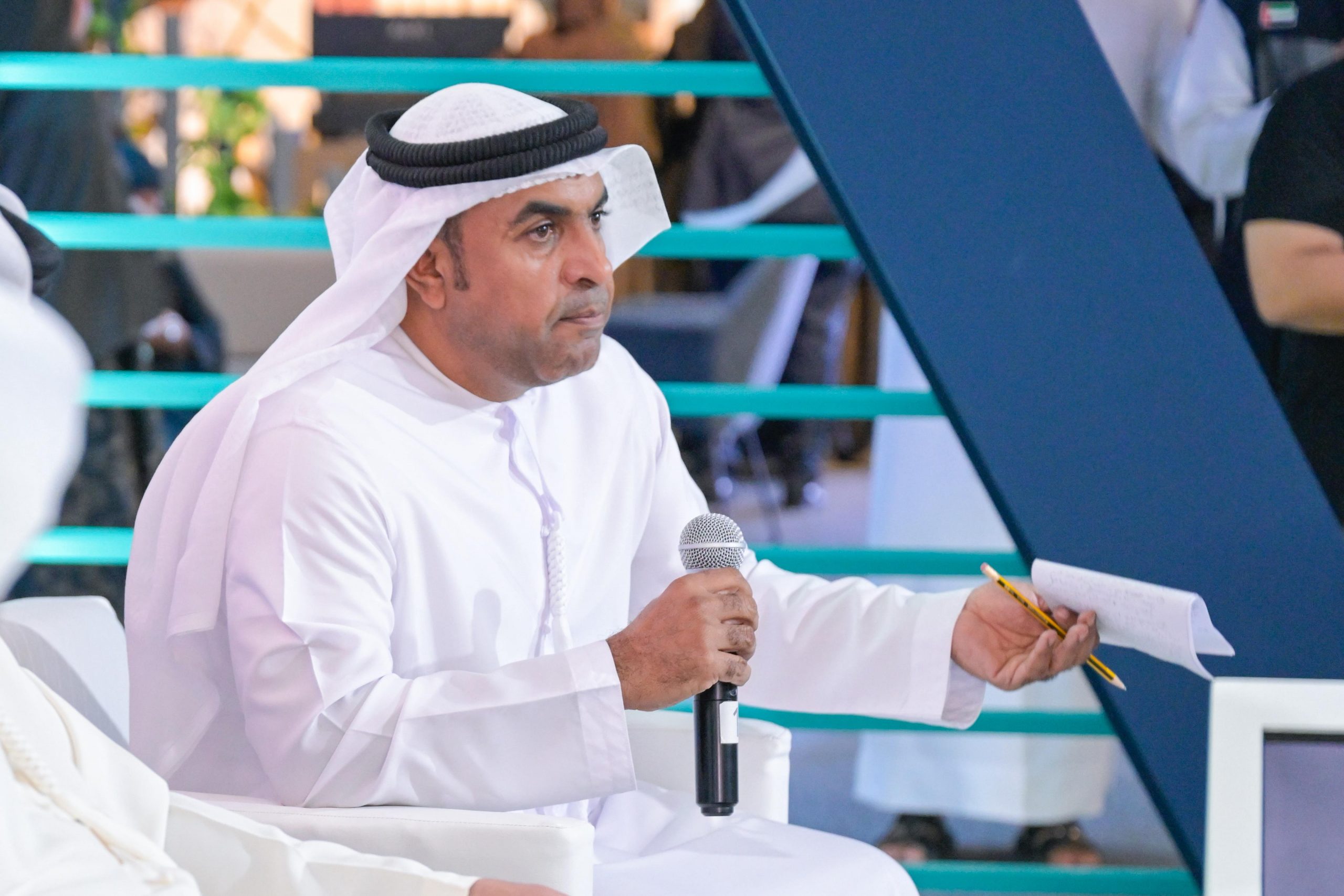-Developing communication tools and adopting digital systems to achieve food security
-Digital and social media platforms are powerful tools for promoting proper food practices
-The international crises that the world has experienced have revealed the weakness of the global food system
TRENDS Research & Advisory started its series of research and academic activities at the International Government Communication Forum 2025, contributing to the 14th edition as a Strategic Partner. An elite group of academics, researchers, and experts participated in a panel discussion titled Communication for Food Security at the TRENDS platform at Expo Centre Sharjah.
Participants in the session, moderated by Saif Al Nuaimi, a researcher at TRENDS Research & Advisory, emphasized the role of government communication and effective media in promoting positive behaviors toward food, rationalizing consumption, eliminating food waste, and the need to encourage local production as a fundamental pillar of quality of life and social stability.

700 Million Suffer From Hunger
Dr. Mohammed Abdullah Al-Ali, CEO of TRENDS Research & Advisory, opened the session by stating that the growing impact of climate change on agriculture and food security has increased food uncertainty. According to the World Health Organization, approximately 2.6 billion people cannot afford a healthy diet, and approximately 700 million suffer from chronic hunger. Additionally, 600 million people fall ill annually due to unsafe food.
He stated that addressing these challenges requires increased food security and nutrition funding, as available funding is used more effectively. This is precisely where the role of effective government communication emerges, especially in the most affected countries. Government communication roles have enhanced efforts to achieve food security and eliminate waste in all its forms, through developing government messages and enhancing targeting methods to modify individual behaviors to ensure optimal food recycling.

Enhancing Proactivity and Resilience
Dr. Al-Ali pointed out that supporting local food production and developing communication tools contribute to achieving flexible food safety in companies, building effective capabilities, and relying on improved digital systems. He emphasized the importance of enhancing proactivity in government communication by relying on digital media and media content creation and developing food messages that eliminate waste and prevent it from occurring. He also emphasized strengthening media calls for food safety and new partnerships through collaboration with the private sector and fostering stakeholder dialogue.
The CEO of TRENDS explained that the UAE has always been a pioneer in confronting this escalating global challenge. In 2018, it adopted an advanced approach to employing government communication, as part of its national vision to achieve food security for the 2051 Strategy. According to the Global Food Security Index, the UAE aims to be the best in the world. He explained that artificial intelligence creates several opportunities; its capabilities can be relied upon to develop effective government communication to promote food recycling activities and combat food waste in all its forms.

The Weaknesses of the Food System
For his part, Mohammed Khalfan Al-Sawafi, Researcher – International Relations Specialist, emphasized that the international crises and conflicts the world has experienced have revealed the weakness of the global food system, leading to the suffering of many of the world’s non-food-producing populations and the spread of epidemics and diseases.
He explained that the COVID-19 crisis and the Russian-Ukrainian war are the best examples of the global food system’s weakness. In other crises and conflicts, governments use starvation and food denial as weapons of war, despite this being criminalized under international and humanitarian law.

Supply Chain Disruption
Al-Sawafi stated that the challenges facing governments in food security threaten the continuity and disruption of food supply chains, given that the theory of interdependence in international relations emphasizes the importance of cooperation between governments in providing mutual benefit. He explained that the issue of self-sufficiency may have declined during the intertwining of interests, the outbreak of wars, and the spread of some organizations on global maritime routes that threaten supply stability. This has prompted governments to cooperate and increase communication to find solutions.

New Logistics Chains
For his part, Dmitry Stasyulis, President of the International Organization for Eurasian Cooperation and Editor-in-Chief of the Eurasian Dialogue magazine, emphasized the importance of directing communication and information to ensure fair and transparent trade, equal access to raw materials and finished products for both producers and consumers, and the elimination of industrial barriers, which contribute to achieving global food security.
He noted that Brazil proposed the ” Global Alliance Against Hunger and Poverty” during its 2024 G20 presidency. It is a proposal that enhances the contributions of countries and international organizations to accelerate efforts to eradicate hunger and poverty by 2030. He added that the Greater Eurasian Partnership initiative represents a promising model for communication on food security, as it is a comprehensive framework aimed at unifying and strengthening fair and equitable cooperation and paving the way for creating new logistics and trade chains. All of these initiatives contribute significantly to finding practical solutions to issues related to food security.

Promoting Food Safety
Professor João Monte, the President of the Brazil Africa Institute, highlighted the vital role of government communication in promoting food safety as a shared responsibility between governments, the private sector, and individuals. He explained that governments have a unique opportunity to reach individuals with accurate information, especially in an era of misinformation and spreading rumors. He added that effective communication ensures that people understand the importance of food safety and its implications for their health and communities.
Monte explained that digital and social media have become increasingly influential tools for disseminating knowledge in real time. If used effectively, these platforms can strengthen communities by facilitating access to reliable information and powerful tools for promoting proper food practices. He emphasized the importance of engaging youth, given their ability to widely disseminate reliable information.a



